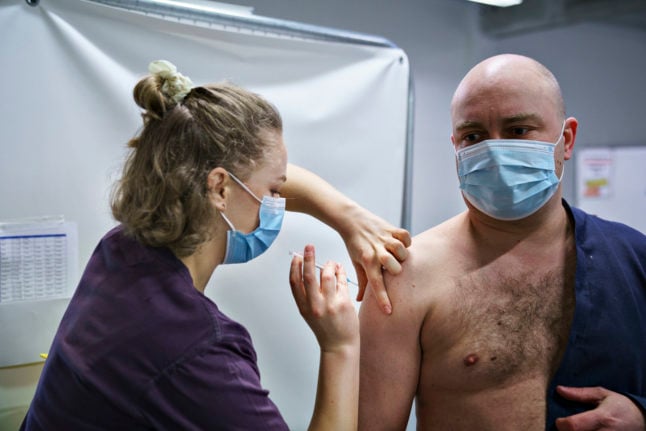Covid-19 infection numbers linked to Euro 2020 matches in Copenhagen show that large events can be hosted in a corona-safe manner, experts have said following the publication of data related to the matches hosted at Parken stadium.
According to the Danish Patient Safety Authority (Styrelsen for Patientsikkerhed), 152 people were infected with coronavirus through attending the matches. As such, they are not classed as ‘super spreader’ events.
“This has shown that these matched were manageable. It’s shown that it was not irresponsible to host the matches at Parken,” Aarhus University virologist Søren Riis Paludan told broadcaster DR.
All of Denmark’s three group stage matches took place in Copenhagen, as did the last-16 clash between Croatia and Spain.
The figures from the Patient Safety Authority reflect the number of infections related to the matches. They therefore take into account persons who were infected and infectious with the virus whilst attending a Euro 2020 match at Parken, as well as people who were infected at one of the matches.
Big screen and private events organised to watch the matches are not included in the data. As such, the effect on infections of, for example, the semi-final between Denmark and England are not accounted for in the total of 152 infections.
Eight infections were connected to the match between Denmark and Finland; 41 to Denmark’s meeting with Belgium and 62 to the final group stage clash against Russia.
The second-round match between Spain and Croatia was linked to 41 infections.
Attendance was lower at the Denmark-Finland match, where 14,000 spectators were present in comparison to 23,000 at the other three matches.
The numbers show “that we can easily manage much larger events if what matters is avoiding more people getting seriously ill,” Riis Paludan said to DR.
The expert stressed that the number of hospitalisations, rather than infections, was a key metric in this sense.
Another expert who provided comment to DR encouraged caution in light of the data from the Euro 2020 matches.
“It’s not the case that infection was kept out of the stadium. This confirms that if you want to have large events, there shouldn’t be too many of them,” Roskilde University mathematical epidemiologist Viggo Andreasen said to the broadcaster.
READ ALSO: Delta variant now makes up nearly 80 percent of Denmark’s new Covid cases



 Please whitelist us to continue reading.
Please whitelist us to continue reading.
Member comments